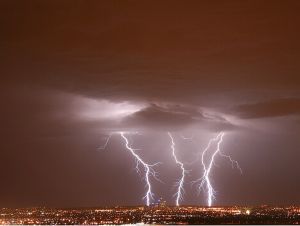Fear the Lord. No Other Word Will Do the Trick.
Body
“Even close relatives like ‘awe’ and ‘reverence’ don’t quite capture the passionate intensity of trembling in the presence of a holy God.” - C.Today
As iron sharpens iron,
one person sharpens another. (Proverbs 27:17)
“Even close relatives like ‘awe’ and ‘reverence’ don’t quite capture the passionate intensity of trembling in the presence of a holy God.” - C.Today
“…many weeks what we mostly want is for worship to give us a good spiritual feeling. I suspect that by our inattention to what we’re singing. We sing various choruses that say, ‘Bring down your glory’ and ‘show us your face.’ But we do not know what we’re asking for. People in the Bible who actually encountered God’s glory fall on the ground in fear.” - Christianity Today
From Baptist Bulletin, © 2018 Regular Baptist Press, all rights reserved. First published at Detroit Baptist Theological Seminary blog.
By Jacob Elwart
“I do not know this Man of whom you speak!” (Peter in Mark 14:71).
 This outline continues a series preached in 2002. For my own edification (and hopefully yours as well), I’ve restudied the passage and made some improvements to the outline.
This outline continues a series preached in 2002. For my own edification (and hopefully yours as well), I’ve restudied the passage and made some improvements to the outline.
Remember that Peter’s original audience was enduring suffering—persecution in particular. Of course, they would experience fear, just as we all do when facing times of trouble. So you would expect the apostle to offer a message of “fear not,” as God’s messengers so often did in Scripture. And in fact he does offer that message eventually (1 Pet. 3:6, 14). But first, rather than saying “fear not,” he says “live in fear.” Why? and what sort of fear does he have in mind?
In our fallenness we’re all only too willing to fear the wrong things and in the wrong way, and in troubled times, that tendency doesn’t go away. This is why God confronted His people through Isaiah with these words.
I, even I, am He who comforts you. Who are you that you should be afraid Of a man who will die, And of the son of a man who will be made like grass? 13 And you forget the Lord your Maker, Who stretched out the heavens And laid the foundations of the earth; You have feared continually every day Because of the fury of the oppressor, When he has prepared to destroy. And where is the fury of the oppressor? (NKJV, Isaiah 51:12–13)
The Scriptures constantly remind us to fear God (Leviticus 25:17, for example), and we find out that such a fear is the “beginning of knowledge” (ESV, Proverbs 1:7). while the fear of man “lays a snare” (Proverbs 29:25).
Many who choose to honor God struggle over what it means to “fear” God. Should we be afraid of him? Or does it mean we reverence him? Or some of both? Even believers in Jesus need to fear God in the sense that we fear his wrath, discipline, and displeasing him. We remember, as the writer to Hebrews reminds us, that our God is a “consuming fire” (Hebrews 12:29). Yet we can call God “Abba, Father” (Romans 8:15), a term of endearment.
A Jewish perspective on fearing God is summarized in the Jewish Encyclopedia:
Who fears God will refrain from doing the things that would be displeasing to Him, the things that would make himself unworthy of God’s regard. Fear of God does not make men shrink from Him as one would from a tyrant or a wild beast; it draws them nearer to Him and fills them with reverential awe. That fear which is merely self-regarding is unworthy of a child of God.

So then, my beloved, just as you have always obeyed, not as in my presence only, but now much more in my absence, work out your salvation with fear and trembling; for it is God who is at work in you, both to will and to work, for His good pleasure (Phil. 2:12-13, NASB).
My study of Philippians has been in progress for some time now, and having reached chapter 2:12-13, I have found some ideas that may be of interest to SI readers.
Many of the problems in our Lord’s church arise from a lack of proper fear and trembling when people work out their salvation (by which I mean they are attempting to make right decisions in light of their understanding of God and His purposes).
Despite this plea of Paul, many people overlook the second half of the phrase, while acknowledging the first. I suspect that most of the people filling the churches in America, if asked whether they are working out their salvation, would affirm that they feel they are on the right path, moving forward spiritually, in tune with God, doing what they feel is right, etc. If asked, however, about daily fear and trembling before God, honesty would compel most to admit that they have little or none.
Christians make decisions of all sorts every day about music, activities, food and drink, clothing, manner of speech, attitude, deportment, ministry, schooling, entertainment, destinations, goals, and many other things. How many of those decisions really reflect proper fear and trembling before God? Do people show fear of abusing God’s grace and patience in American church business meetings? How many decisions are made with selfish, pragmatic or economic motives? Though failure to fear God is associated with wicked persons (Rom. 3:18, Ps. 36, etc.) the church is rife with people who make countless decisions with no fear of God before their eyes.
Discussion